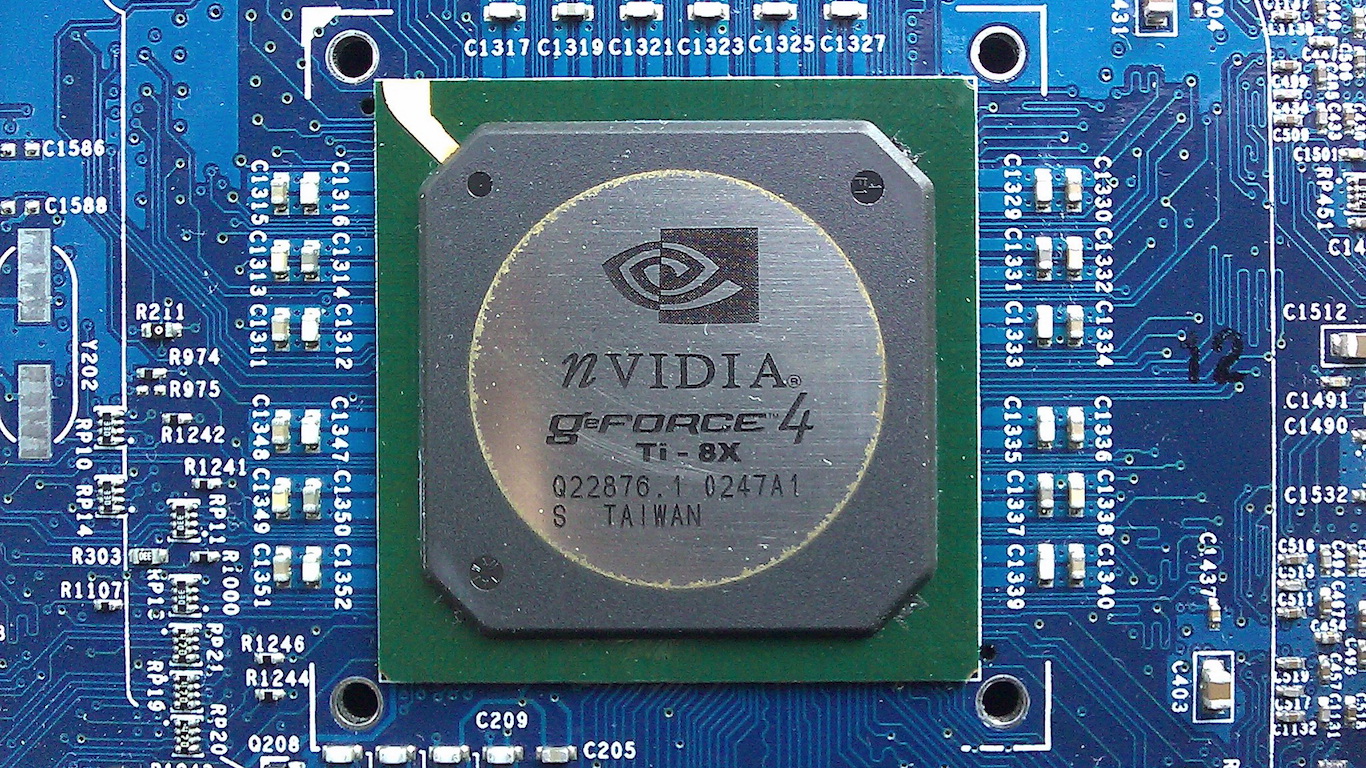
Less than six months ago, graphics chipmaker Nvidia Corp. (NASDAQ: NVDA) completed its $6.9 billion all-cash acquisition of Israel-based networking firm Mellanox. On Sunday, Nvidia announced a deal nearly six times bigger, a cash and stock acquisition of chipmaker Arm Holdings from Japan’s SoftBank Group.
According to the announcement, Nvidia will pay Softbank $12 billion in cash and $21.5 billion in newly issued shares of Nvidia stock. SoftBank also may receive an earnout of $5 billion in cash or stock based on Arm’s financial performance, and Nvidia will issue $1.5 billion in equity to Arm employees.
Nvidia will use its own cash (nearly $11 billion at the end of the second quarter) and issue 44.3 million new shares to pay for the transaction. Why borrow cash when the company can print its own Nvidia bucks? This may be the sweetest deal ever.
It’s certainly the largest ever for a chipmaker, besting Avago’s acquisition of Broadcom for $37 billion in 2016. When the discussions between Nvidia and SoftBank were revealed in late July, one analyst expected Arm to fetch around $44 billion and to be valued at around $68 billion by 2025. The $40 billion price tag is a knock-down price.
The hard part begins now. The deal is expected to take 18 months to complete and requires regulatory approval from the United Kingdom, China, the European Union, and the United States.
Reaction, in the United Kingdom particularly, has been cold. In August, Arm co-founder Hermann Hauser spoke out strongly about a potential sale of Arm to Nvidia. He told Reuters, “If it becomes part of Nvidia, most of the licensees are competitors of Nvidia, and will of course then look for an alternative to ARM.”
Hauser was even cooler in an interview Sunday night, telling Reuters that the sale to Nvidia could be a catastrophe for Europe, the United Kingdom and Cambridge: “It’s the last European technology company with global relevance and it’s being sold to the Americans.”
National pride aside, regulatory approval was likely to be a rough road for any tech firm that uses Arm’s designs and would then have pricing power over competitors that also use Arm technology. Apple Inc. (NASDAQ: AAPL), which uses Arm-based chips in its iPhones and will begin using them in Macs, reportedly was not interested, largely due to the perceived difficulty of obtaining regulatory approval.
Nvidia’s CEO and co-founder, Jensen Huang, tried to allay these fears: “This combination has tremendous benefits for both companies, our customers, and the industry. For Arm’s ecosystem, the combination will turbocharge Arm’s R&D capacity and expand its IP portfolio with NVIDIA’s world-leading GPU and AI technology.”
SoftBank CEO Masayoshi Son added: “This is a compelling combination that projects Arm, Cambridge and the U.K. to the forefront of some of the most exciting technological innovations of our time and is why SoftBank is excited to invest in Arm’s long-term success as a major shareholder in NVIDIA.” SoftBank’s stake in Nvidia will be less than 10%, and the Japanese firm will not get a seat on Nvidia’s board.
Nvidia shares posted an all-time high of $589.07 on September 2, before slipping as tech stock prices tumbled last week. The stock was trading up about 6.5% in Monday’s premarket session, at $518.12, after closing at $486.58 on Friday. The stock’s 52-week low is $169.32. The consensus 12-month price target is $543.35.
Softbank’s stock gained about 9% in Tokyo to close Monday trading at ¥6,385 ($60.25).
Thank you for reading! Have some feedback for us?
Contact the 24/7 Wall St. editorial team.

 24/7 Wall St.
24/7 Wall St.



